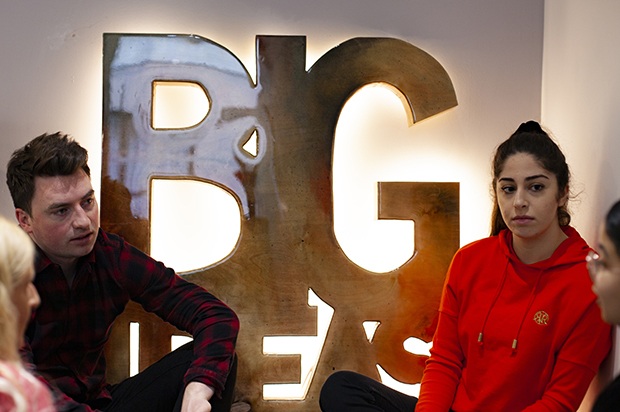Ground-breaking research reveals 1 in 3 young people have self-harmed
Research commissioned by The Mix and carried out in collaboration with YouGov has shown that over 1 in 3 young people have self-harmed, which is dramatically above the NHS estimate of 1 in 10.
In advance of Self-Harm Awareness Day (SHAD) on 1st March, The Mix wanted to understand the full extent of self-harm amongst young people, in order to explore why they are self-harming and what the barriers are to seeking support.
The results show that the stigma around self-harm, and a lack of sufficient resources is preventing young people from speaking out and seeking help when they are self-harming.
The research also reveals that young people who are gay, lesbian, bisexual, asexual and aromantic are more than twice as likely to self-harm than their heterosexual peers. Women aged 16-25 are also nearly twice as likely to self-harm than men in this age group.
Professor Ann John, Professor of Public Health and Psychiatry, Swansea University, says:
“Self-harm in young people is a very real issue that we all need to take seriously. It is often a way to deal with difficult distressing emotions. This survey by The Mix highlights that many young people do not seek help and identifies a lack of knowledge on how to find support and advice. The issues raised about peers’ and professionals’ knowledge and awareness brings to the fore young peoples’ voices about the help and support they need- professional training and tools, as well as, safe talking spaces be they online, live chats and forums. It’s important to place the voices of young people who self-harm at the centre of service development and it’s great to see The Mix doing this.”
Natasha Devon MBE, activist, writer and mental health, expert says:
“Self-harm is always a manifestation of some sort of distress. If 1/3 of young people are self-harming, that means at least 1/3 of them are in emotional distress. As a society, we need to ask ourselves some difficult questions about what’s caused this. It’s likely to be a range of things, from additional pressure at school, to the impact of austerity to the catalyst impact of social media. These issues all require attention – and fast.”
Argyrios Terzis, counsellor at The Mix and self-harm expert, says:
“Self-harm can be many things, but most importantly it is a way of coping. Through psychological distress, suppression of emotions and low self-esteem and self-worth, individuals develop self-harm behaviours as a coping mechanism. We want to remove the stigma around self-ha rm to encourage young people to reach out to a professional and talk about what they are going through. The Mix believe that our statistics are vital to developing our understanding of self-harm and improving our support services to ensure greater safety for young people.”
In the YouGov survey, 21% of those who had self-harmed had told no one at all. The Mix believe that the stigma around self-harm needs to be broken and that to keep young people safe, we need to create safe and supportive space where those who self-harm can share their experiences and begin their journey of recovery.
Spaces where young people can talk openly about the realities of self-harm are essential. Our research consistently shows conversation and a feeling of being understood are the best forms of support. At The Mix we aim to offer spaces for conversations to take place and information for those who need help or who wish to be informed whilst supporting a friend or family member.
Notes to editors:
Media enquiries: Holly Turner (Editorial Communications Manager) [email protected]
Press number: 07766660755
Zoe Bailie (Director of Brand and Innovation at The Mix) is available for interviews
By
Published on 01-Mar-2020
Sorry, comments closed
No featured article















